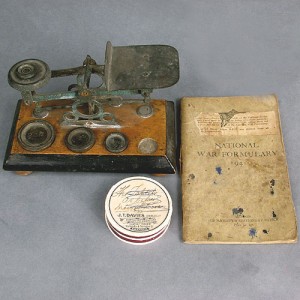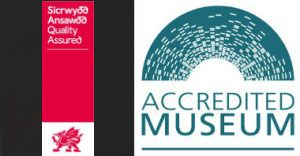 During the war years,1939-45, it was not only food, fuel and clothes that were in short supply. The availability of tablets and medicines was also affected.
During the war years,1939-45, it was not only food, fuel and clothes that were in short supply. The availability of tablets and medicines was also affected.
The National Formulary for 1941, listing pharmaceutical substances, their formulas, uses and methods of preparation for use by doctors, pharmacists, etc. stated “War conditions make it imperative to exercise the strictest economy in prescribing…many important substances are available in but limited amounts for medicinal purposes. They are more urgently required for other branches of the nation’s war effort.”
The ingredients that were available were weighed out precisely on scales using tiny brass weights (2ozs; 1oz; 1/2oz; 1/4oz). The tablets were then dispensed in circular, cardboard pill boxes like this one from J. T. Davies (Chemists) Ltd. of the Uplands in Swansea.
Paper-based pill boxes were patented in 1890 by Robinson & Son (today Robinson Healthcare, Worksop) whose business began in 1839.
This item is located at Swansea Museum Collections Centre at Landore in the Stores

